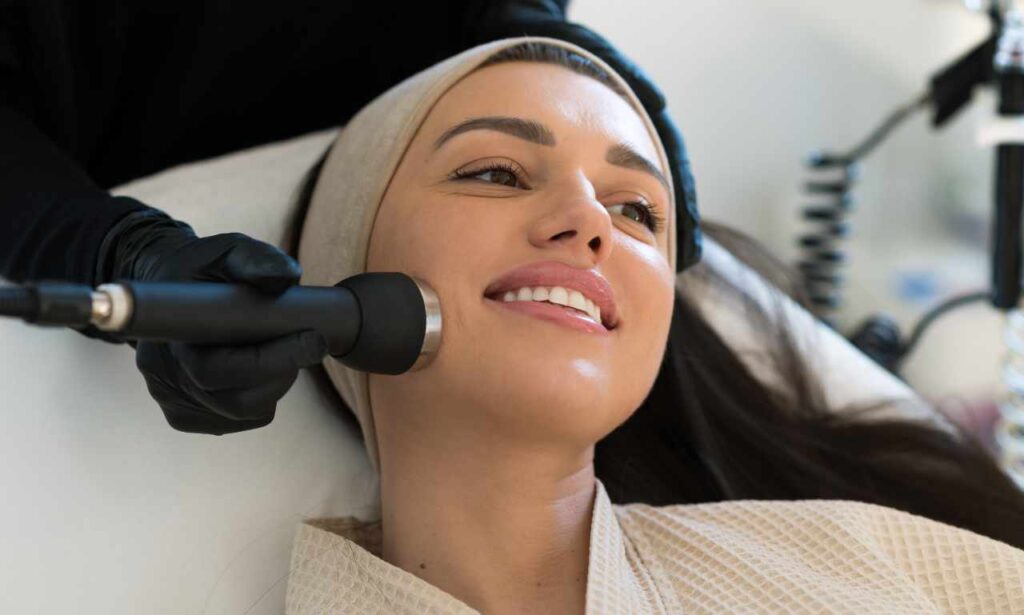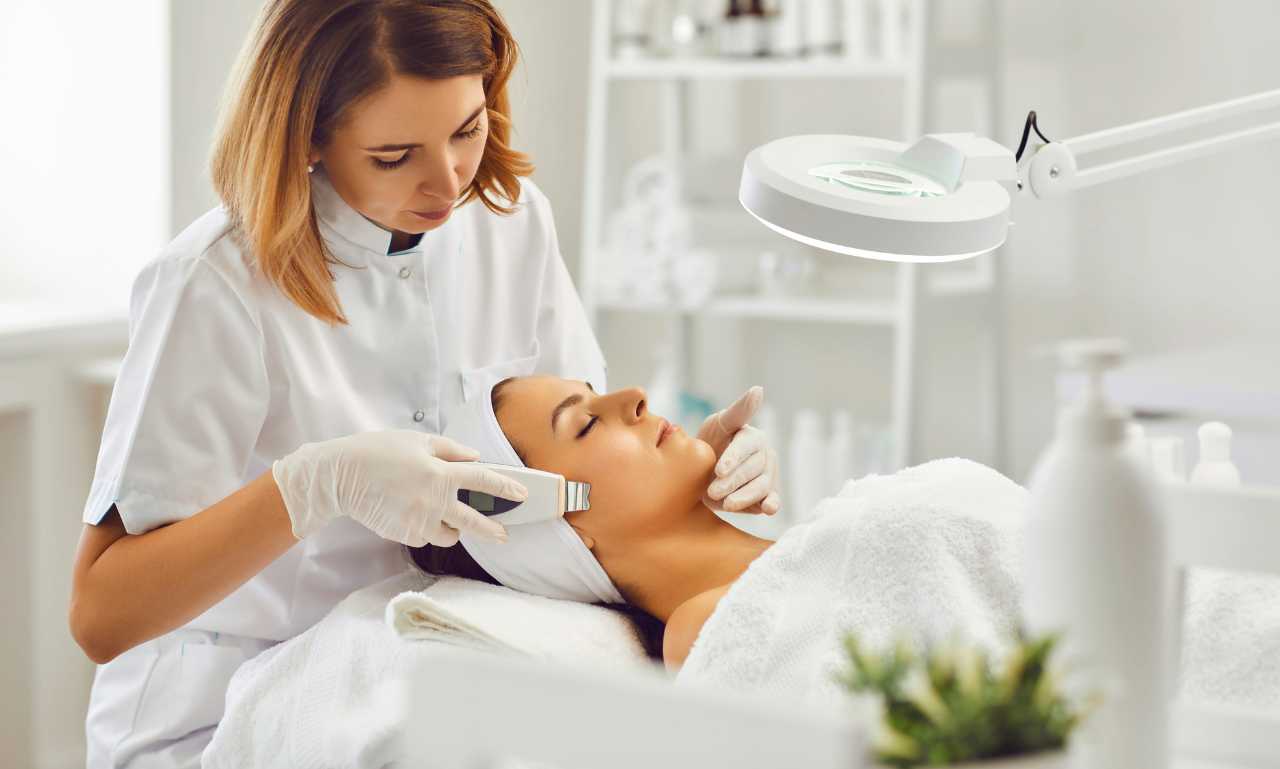Introduction
The world of beauty has a key player, known as the cosmetologist. This expert is much more than just someone who applies makeup or styles hair. A cosmetologist is a trained professional who understands the science of beauty, from the right skincare routine to the perfect hair color for individual skin tones. They play a crucial role in helping people look and feel their best.
But why would someone decide to become a cosmetologist? Let’s delve into the author’s journey. For the author, the decision wasn’t just about being surrounded by beautiful hair and makeup products. It was about making a real difference in people’s lives. Imagine helping someone gain confidence before a big event or teaching someone how to care for their unique skin type. The joy of seeing someone’s face light up after a makeover or the satisfaction of guiding someone on the right beauty routine was the driving force behind the author’s choice. It’s a career that combines creativity, science, and the genuine pleasure of making a positive impact in someone’s day.
The Secrets Behind Hair Care
When it comes to managing and nurturing our hair, there’s a wealth of information out there, and not all of it is accurate. Let’s dive deep into the secrets behind hair care, dispel some common myths, explore the mistakes many unknowingly make, and finally, arm ourselves with knowledge from insiders to keep our tresses looking their best.
A. Hair Myths Debunked
- Myth 1: Cutting hair makes it grow faster. While it might seem like a fresh trim results in speedier growth, this isn’t the case. Cutting the ends of your hair doesn’t affect the follicles in your scalp, which determine hair growth. Regular trims, however, can prevent split ends and breakage, giving the appearance of fuller and healthier hair.
- Myth 2: Daily washing strips natural oils. It’s essential to understand that hair washing frequency should cater to individual needs. For some, daily washing might be beneficial, especially if the scalp is oily or they’re very active. However, for others, frequent washing could indeed strip the hair of its natural oils, making it dry. The key is to observe how your hair responds and adjust your washing routine accordingly.
B. Top Hair Care Mistakes Clients Make
- Using the wrong products: Just as you wouldn’t use any random skincare product without considering your skin type, the same holds for hair care. Using products not suited for your hair type (be it oily, dry, curly, or straight) can lead to issues like frizz, dryness, or excessive oiliness.
- Overheating and damaging hair: We all love the polished look that comes from straighteners, curling wands, and blow dryers. But frequent high heat without protection can cause significant damage. Over time, hair can become dry, brittle, and prone to breakage.
C. Insider Tips for Healthier Locks
- Importance of scalp care: Your scalp is the foundation from which your hair grows. Just like plants thrive in fertile soil, healthy hair grows from a well-cared-for scalp. Regular massages, proper cleansing, and sometimes even specialized treatments can ensure a healthy scalp environment.
- Hair treatments that really work: Not all treatments are mere hype; some genuinely benefit your locks. Deep conditioning treatments, for instance, can provide much-needed moisture. Protein treatments can strengthen hair that’s been damaged. The trick is to identify what your hair needs and choose treatments tailored to those needs.
By staying informed and understanding the genuine needs of your hair, you’ll be on the path to luscious, healthy locks in no time.
The Art of Makeup: More than Meets the Eye
When we think of makeup, we often imagine a plethora of colors and tools that allow us to paint and express ourselves on the living canvas that is our face. It’s an art form, a method of self-expression, and a medium of transformation. However, even in its allure, makeup comes surrounded by numerous misconceptions and pitfalls.
A. The Biggest Misconceptions about Makeup
- The more expensive, the better: It’s a common belief that a higher price tag automatically equates to better quality. This is not always the case. While some high-end brands do offer excellent products, there are numerous budget-friendly brands that deliver impressive results. The true measure of a product’s worth lies in its ingredients, how it meshes with individual skin types, and actual performance. Always check the ingredients list, seek genuine customer reviews, and perhaps even sample before making a full purchase.
- Needing makeup to look beautiful: One of the most pervasive myths is that beauty is dependent on makeup. While makeup can certainly enhance features and give a boost of confidence, it should never be the sole source of one’s self-worth. Real beauty radiates from within – it’s an aura of self-confidence, a genuine smile, and the authenticity with which one carries oneself. Makeup should amplify, not redefine, one’s natural beauty.
B. Common Makeup Mistakes and How to Avoid Them
- Overdoing the foundation: The aim of foundation is to even out the skin tone, not mask it. Layering it on too thickly can result in an artificial, cakey appearance. It’s always recommended to start with a small amount and blend well. If more coverage is needed, build up in thin layers.
- Ignoring the eyebrows: They say that eyes are the windows to the soul, but eyebrows are the frames. Ignored or poorly managed brows can throw off an entire look. It’s essential to groom, shape, and if needed, lightly fill in the brows to complement the face’s overall makeup.
- Mismatched foundation shades: One of the most noticeable makeup blunders is wearing a foundation shade that doesn’t match one’s skin tone. Always swatch foundation on the jawline and check it in natural light. Consider both the skin’s surface color and undertones to find the most harmonious match.
C. Pro Tips for a Flawless Finish
- Prepping the skin before makeup: As any artist knows, a smooth canvas delivers the best results. Before makeup application, ensure that the skin is clean, moisturized, and primed. This not only provides a smoother finish but also extends the longevity of the makeup.
- Choosing the right tools: The difference between streaky and seamless makeup often lies in the tools used. Invest in high-quality brushes, sponges, and other applicators. Equally important is the regular cleaning of these tools to prevent bacterial buildup and ensure optimal performance.
- Embracing natural beauty: Contemporary beauty trends lean heavily towards a natural look. Instead of masking features, the current ethos is about enhancing and celebrating them. A touch of concealer, a light flush on the cheeks, and a dab of lip tint can often be more striking than a full face of makeup.
Skin Care: The Foundation of Beauty

Glowing, healthy skin is often considered the pinnacle of beauty. But achieving and maintaining such skin requires understanding, dedication, and often wading through a sea of advice, products, and old wives’ tales.
A. Myths that Damage the Skin
- Tanning is harmless if done occasionally: It’s a misconception that occasional sunbathing without protection is okay. The truth is, UV exposure, even infrequently, can accumulate damage over time, increasing the risk of premature aging and other skin concerns.
- Acne is just a teenage problem: Acne isn’t reserved for the tumultuous teenage years. Many adults experience acne due to factors such as diet, hormonal changes, stress, or certain medications.
B. Biggest Skin Care Mistakes Witnessed
- Over-exfoliating: Exfoliation can make skin feel fresh and rejuvenated by removing dead skin cells. However, overdoing it, especially with physical scrubs, can irritate the skin, leading to redness or breakouts.
- Ignoring the neck and décolletage: These areas are as exposed and vulnerable as the face but are often overlooked in daily skincare routines. Regular care can prevent premature aging in these zones.
C. Holistic Approach to Skin Health
- The role of diet and hydration: What’s consumed reflects on the skin. Nutrient-rich foods, particularly antioxidants, vitamins, and minerals, alongside ample water, can significantly improve skin health.
- Importance of sleep and stress management: Beauty sleep isn’t just a saying; the skin repairs and rejuvenates during sleep. Combined with effective stress management, it ensures a radiant complexion.
V. Beyond the Basics: Other Insights from the Beauty Chair
Beauty, though often seen through a physical lens, involves a medley of emotional experiences and discoveries. Here, we delve deeper into its more profound aspects.
A. The Emotional Impact of Beauty Treatments
- Building client confidence: Beauty treatments often go beyond the skin’s surface. The renewed confidence and the spring in the step post a pampering session speak volumes about its emotional impact.
- The therapeutic role of beauty sessions: Beyond aesthetics, the gentle touch during a facial or the transformative journey of a makeover can offer emotional relief and therapeutic benefits.
B. Addressing Unique Beauty Needs
- Tailoring services to diverse skin and hair types: Recognizing the unique needs of different skin and hair types and customizing treatments accordingly ensures every individual feels catered to and achieves optimal results.
- The role of age, lifestyle, and climate in beauty care: A teenager’s skin has different needs than someone in their fifties. Similarly, a person’s lifestyle (e.g., active vs. sedentary) and the climate they live in play significant roles in the kind of care required.
C. Sustainability and Ethics in Cosmetology
- Choosing cruelty-free products: In the modern beauty world, it’s essential to make ethical choices. Opting for products not tested on animals ensures a cruelty-free beauty routine.
- Advocacy for sustainable beauty practices: The beauty industry is becoming increasingly aware of its environmental impact. Prioritizing sustainable practices, from sourcing ingredients to packaging, is the way forward for conscientious beauticians and consumers alike.
The Personal Rewards and Challenges of Being a Cosmetologist
Behind the glitter, the beauty industry demands dedication, continuous learning, and genuine passion. Here’s a glimpse into the life of a cosmetologist.
A. Most Rewarding Moments
- Transformations and client reactions: For a cosmetologist, few things are as rewarding as witnessing the immediate, positive reaction from a client post-transformation. It’s a testament to their skill and the trust placed in them.
- Building long-term client relationships: Beyond one-time services, the joy of building and maintaining long-term relationships with clients is unparalleled. It’s a journey of mutual trust and respect.
B. The Challenges and How They Shape Expertise
- Keeping up with beauty trends: The fast-paced evolution of beauty trends can be overwhelming. However, keeping abreast of them ensures a cosmetologist remains relevant and meets the diverse needs of their clientele.
- Addressing unrealistic beauty standards: In an era dominated by filters and photoshopped perfection, promoting natural beauty and managing clients’ expectations becomes both a challenge and a duty.
- Balancing personal creativity with client preferences: Every artist has a signature style, but in the beauty industry, it’s essential to harmonize this style with the client’s desires. It’s a dance of understanding and compromise that leads to satisfied customers.
Conclusion
The beauty industry, much like a kaleidoscope, is ever-changing, presenting a vibrant array of trends, techniques, and innovations. This dynamic landscape calls for cosmetologists to be perpetual students, always on the lookout for the next wave of knowledge. It’s not merely about keeping up with the times; it’s about predicting them, understanding them, and weaving them into one’s unique tapestry of skills.
Yet, beyond the glitter and the glam, at its core, beauty is profoundly personal. To the author, beauty isn’t just about the aesthetics; it’s an embodiment of inner confidence, the radiance that beams when one feels good in their skin. It’s about the silent stories eyes tell, the confidence that echoes in one’s steps, and the authenticity that speaks louder than any lipstick shade. In the grand tapestry of cosmetology, the true essence of beauty is the empowerment and joy it brings to each individual, a sentiment that the author cherishes and carries into every brush stroke, every haircut, and every consultation.




